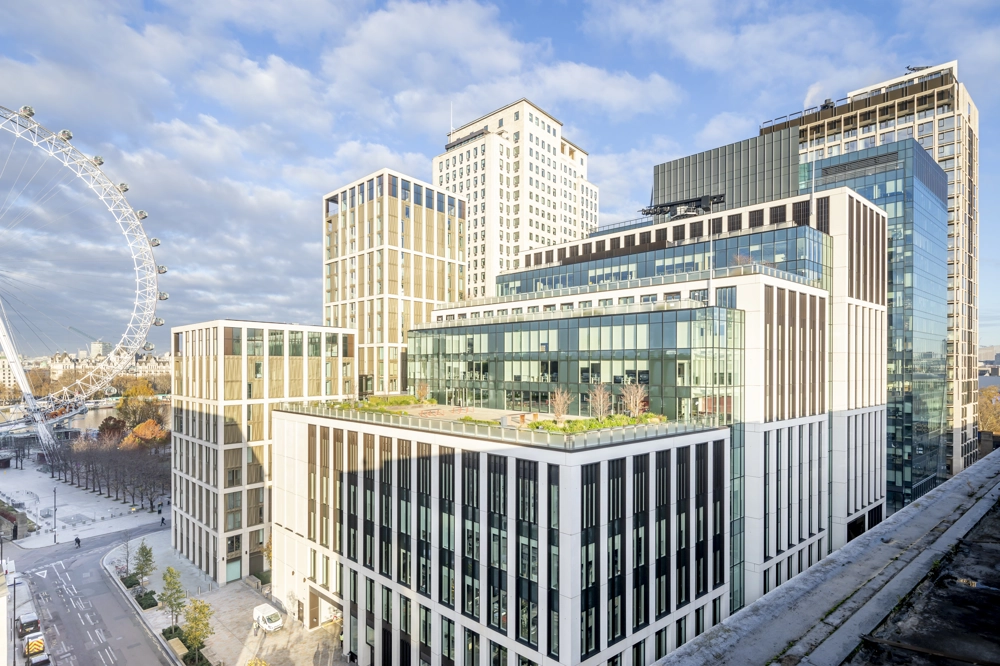Media enquiries relating to housing.
Employment, housing and education are key in addressing the UK’s health and wellbeing inequalities
The latest edition of L&G’s Rebuilding Britain Index (RBI) shows improvements across Jobs and the Economy are offset by a worrying downward trend in Britain’s access to healthcare and housing, with an overall flat score of 64/100.
28 Apr 2022
Full press releaseFull report

- The UK is among only a small number of industrialised nations which have seen life expectancy improvements stall over the last decade – health is one of only two components of the RBI to have consistently fallen each quarter since its inception in April 2021, driven by the perceived challenges being felt locally in accessing timely primary and secondary healthcare services.
- L&G’s research shows there is a clear link between all forms of built and economic infrastructure with both health outcomes and the UK’s sense of wellbeing and happiness. Across the UK, only 62% of people feel satisfied with their lives, while only 61% state that they feel happy.
- Those satisfied with their local area as a place to live score 20 points higher on Health, Housing, Transport and Environment index scores – the most important measure impacting levels of satisfaction with people’s local area is access to high quality primary care (62%)
- The Government’s Levelling Up Fund shows that there are currently only two projects funded that explicitly address health (out of 105 successful first round bidders). L&G are calling for targeted investment across the entire range of economic and built infrastructure in order to narrow the gaps in localised health outcomes (such as the 12-year discrepancy in life expectancy we see in Manchester – with an average 83.0 years for Manchester City Centre far higher than the average 70.7 years in Miles Platting & Newton Heath).
Following the announcement of Legal & General (L&G) and UCL Institute of Health Equity (IHE) entering into a four-year partnership to further the role of business in reducing inequalities in UK health, latest findings published in the RBI demonstrates that actions taken to improve physical and economic infrastructure will result in healthier and happier communities.
The RBI was established to measure the UK’s progress in levelling up on a quarterly basis, surveying 20,000 people annually and tracking social and economic progress across 52 measures, including Health and Social Care, Education, Housing, Jobs & Economic Prosperity, Environment, Energy, Transport and Digital.
The RBI has remained flat, at a score of 64/100, for the fourth successive quarter, though this hides some significant developments. While the Jobs & Economy index score has risen for the third successive quarter, both the Health (67/100 compared to 70/100 in April 2021) and Housing (56/100 compared to 60/100 in April 2021) index scores continue to decline. Reflecting the delivery challenges being felt by health services up and down the UK, continuing declines in the Health index score reflect lower levels of satisfaction within local communities with regards to being able to access to timely and high quality primary and secondary healthcare services.
The recent Levelling-Up White Paper lists health among their twelve “core missions”. The research reveals the links between health and physical and economic infrastructure – with these links strongest in three key aspects:
- Average earnings – those in the top 10% for life expectancy achieve an index score of 81/100 compared to only 31/100 for those in the bottom 20%
- % of people with NVQ level qualifications – those in the top 10% for life expectancy achieve an index score of 81/100 compared to only 39/100 for those in the bottom 20%
- Unemployment – those in the top 10% for life expectancy achieve an index score of 81/100 compared to only 48/100 for those in the bottom 20%
With the White Paper making improvements to levels of happiness and life satisfaction within the population a key metric by which Levelling-Up will be measured, L&G’s research also shows the clear link between wellbeing and infrastructure.
Across the UK, 62% of people state that they are currently very or fairly satisfied with their lives, with 17% feeling dissatisfied. Similarly, 61% of people stated that they felt either very or fairly happy on the previous day, with 16% feeling unhappy. There is relatively little difference in these figures across the UK.
However, the findings make clear the importance of income, home ownership and health on both life satisfaction and happiness. Higher income earners and home owners are significantly happier and more satisfied with their lives than those earning the lowest incomes. Similarly, those “very satisfied” with their lives or feeling “very happy” achieve far higher Health scores on the index (74/100 and 73/100 respectively) compared to those “very dissatisfied” or “very unhappy” (54/100 and 57/100 respectively).
Nigel Wilson, CEO at Legal & General: For the first time since the inception of the Rebuilding Britain Index we now have a sense from Government on what they mean by levelling-up the UK and how they intend to measure progress. The measures closely resemble those used within our own index, though also include long-term aspirational measures around happiness, life satisfaction, place satisfaction and levels of anxiety. However there are strong headwinds, with rising inflation especially driven by global energy and food prices. The relatively strong performance of our index on jobs and the economy may take a downward turn in future quarters.The Index is also very clear about housing: we need more and better housing for all types of tenure – build to sell, build to rent, affordable housing and later life living. Housing is an issue that can be tackled, especially if we use modern methods of construction to create climate-friendly homes to support people throughout their different life stages.
Both for housing and for broader economic performance, all regions of the UK need a rapid increase in investment – into the very fabric of the country and into new and growing businesses creating high-productivity, high-pay jobs. The financial fire-power to invest to offset these headwinds exists, not least in our pension system: it needs to be used much more productively.
Reducing health inequalities is a key part of levelling up. Our own data shows that the UK’s housing correlates with health and wellbeing outcomes. Better housing drives better health, and better health in turn creates a virtuous circle – those in very good health perform better across our entire index. The findings reinforce those from our recent Marmot Review in that there is a strong case for building health, literally a life or death issue, into an expanded “ESHG” framework to ensure it is better integrated into the way business and government address the issue.
Further information




